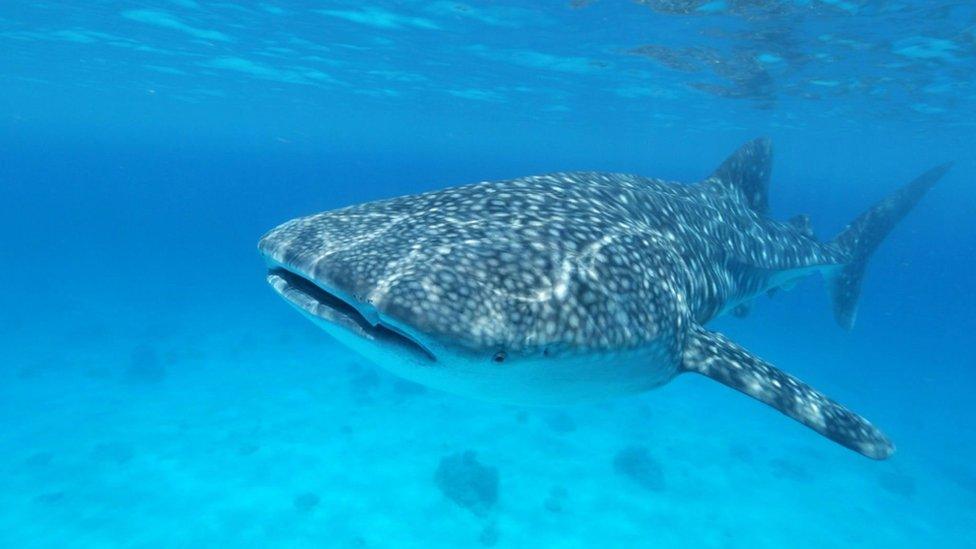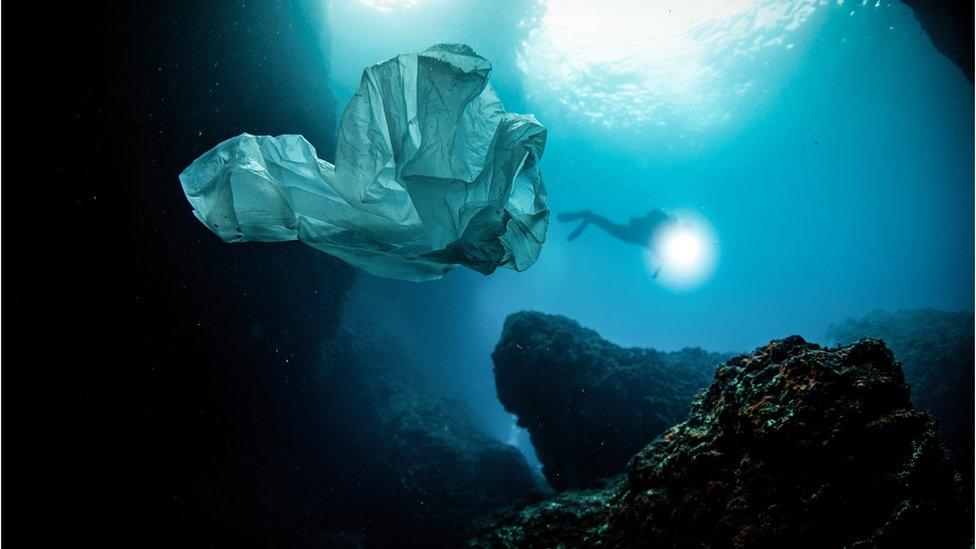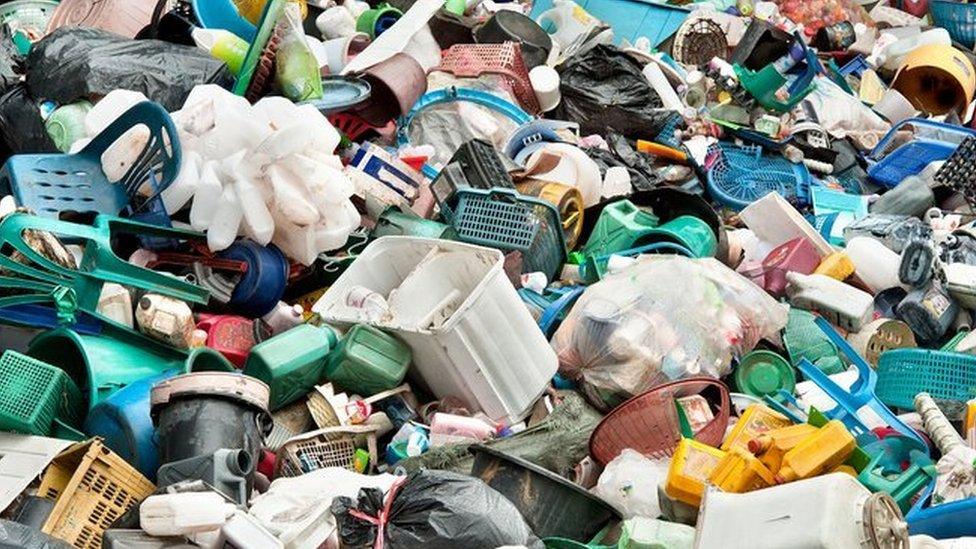Plastic pollution: Whale sharks eating thousands of pieces a day
- Published
- comments

Whale sharks could be swallowing hundreds of pieces of plastic an hour because of pollution.
A study in Indonesia found the surface waters where they feed are so contaminated, the big fish end up eating lots of plastic.
The waters there are rich with plankton and provide a lot of feeding opportunities for mantas and whale sharks.
But they are also places where a lot of our plastic waste also ends up.

How did scientists work it out?
Scientists used fine nets to gather samples and measure the amount of plastic in the inshore surface water, where whale sharks and manta rays gather to feed.
They used these measurements to estimate how much plastic big filter-feeders were likely to be consuming.
Elitza Germanov, a marine biologist at the Marine Megafauna Foundation and Murdoch University, said "with time, plastics break down into smaller pieces called microplastics that large marine filter-feeders might accidentally scoop up because they float among their prey."
Elitza said "manta rays and whale sharks can ingest microplastics directly from polluted water or indirectly through the contaminated plankton they feed on.''
The study also found that the amount of plastic in seawater was up to 44 times higher during the rainy season, when rivers carry huge amounts of waste to the ocean.
- Published11 June 2019

- Published25 February 2019

- Published19 November 2019

